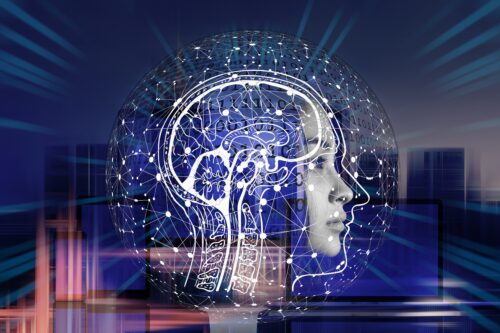Can we trust our own reality?
As neurologist Guy Leschziner describes in his recently released book, The Man Who Tasted Words, the senses of sight, sound, touch, taste, and smell enable humans to craft an understanding of the world outside of the physical body. “These senses are our windows on reality, the conduits between our internal and external lives. […] Without them, we are cut off, isolated, adrift,” Leschziner writes. Moreover, as the phrase “seeing is believing” suggests, humans often rely on sensory information as infallible evidence obliterating all doubt about the existence of some entity or phenomenon in the world. However, are the senses accurate?
“What we believe to be a precise representation of the world around us is nothing more than an illusion, layer upon layer of processing of sensory information, and the interpretation of that information according to our expectations,” Leschziner says. He suggests that the sensory organs fail to function as accurate witnesses of reality. Therefore, we should question the reliability of conscious experience. In essence, the nervous system functions as a supercomputer manufacturing human perception through processes reconstructing sensory inputs largely without our awareness. That is, the physical interactions of the sense organs—the eyes, skin, ears, nose, and mouth—with the external world are merely basic inputs quite disparate from the nervous system’s construction of perception.
If the nervous system shapes our reality, what happens when neural processes go awry? Throughout his book, Leschziner describes individuals with sensory abnormalities. For instance, one patient named James experiences synesthesia, in which stimulation of one sensory modality concurrently evokes sensation in another modality. For James, this involves the fusion of sound and taste, conferring the ability to essentially perceive the taste of words. The Lord’s Prayer tastes like bacon, the name of his friend’s wife tastes like chunky vomit, the word “court” tastes like a crispy fried egg, and his grandmother’s name tastes like rich condensed milk. As James’s story demonstrates, neurological conditions like synesthesia fundamentally alter one’s experience and perception of reality.
Humans often rely on the senses for a faithful understanding of the external world. However, we must recognize the innate limitations of that approach. “Our experiences and cold, hard reality can be almost entirely divorced, as with molecules of a particular structure and our experience of smell or flavour,” Leschziner writes. The brain essentially manufactures a perception far removed from the physical world. Meanwhile, human perception remains reliant on the integrity of the nervous system that converts basic sensory inputs into conscious meaning. “The pathways, from physical environment to our experience of it, are convoluted and complex, vulnerable to the nature of the system, friable in the face of disease or dysfunction,” Leschziner says. As it appears, the brain functions as the master controller employing unseen manipulations to manufacture a perception both distinct from physical reality and malleable in response to structural or functional changes in the nervous system.
Perhaps we cannot trust our own reality.

